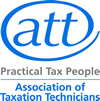 Call us now on 01926 633074
Call us now on 01926 633074

Jeff West is licensed and regulated
by AAT under licence number 13


April Questions and Answers
Newsletter issue - April 2022.
Q. Our long-term landlord has offered us the opportunity to purchase the freehold in the office building we work from, which we are keen to do. However, they have opted to tax the building. I'm aware we could recover the input tax but it will still have a short term negative impact on our funds. Is there any way to avoid incurring it in the first place?
A:The most obvious way to avoid the input tax hit is to ask your landlord to revoke the option. This will be possible if it was made more than 20 years ago. This will definitely be worth doing, because you will have to pay SDLT on the VAT-inclusive purchase price, and so this will mean an additional cost for you.
If this isn't possible, another option would be to structure the purchase as a transfer of a going concern. You would need to create a new legal entity, e.g. another company to do this, and meet the conditions set out in VAT Notice 700/9. There are specific requirements in relation to land and property, so pay particular attention to paragraph 2.3.
If you feel this approach is heavy handed, you could try to agree that under the sale contract, an amount of consideration equal to the VAT payable will be deferred until it can be recovered. Of course, this leaves you with the SDLT problem, so consider the other options first.
Q. I am a shareholder in a family-run trading company. Last year I purchased a hybrid car via the company. The relevant BIK percentage is 14%. With the recent increase in fuel prices, I am considering having the company purchase the fuel for the car and reimburse it for the private fuel without incurring a benefit in kind? Currently I don't claim anything as business journeys tend to be covered by the battery range.
A: In theory yes, but if you don't reimburse every last penny you will incur a taxable benefit of 14% x £25,300 = £3,542. You will pay tax on this, and the company will have to pay Class 1A NI. You would have to keep meticulous records to precisely determine your private mileage. This may be difficult to do in practice.
Instead, consider having the company pay you at the approved mileage rates for your business mileage. As your car isn't fully electric, you will be able to claim at the appropriate rate for petrol or diesel cars accordingly, and as you say the business mileage is generally covered by the electric range, this would be very efficient. The latest rates are available here and are updated quarterly.
Q. We have an employee currently seconded from our EU-based parent company. Initially, she was due to be with us for 18 months, of which twelve have already passed. We are paying for a flat for her on the basis that it is a temporary workplace, so not taxable on her. We are considering extending her stay for a further 18 months, as she has had a very positive impact. Are we able to continue paying the rent on the flat tax free until two years has elapsed?
A: A workplace is only "temporary" as far as the expectation is that it will be the workplace for less than two years. If you decide that you are going to extend the secondment beyond two years, the trigger date for the rent payments becoming a taxable benefit is the date that decision is made, because it can no longer be said that the expectation is that your site will be the workplace for less than two years.
 Cookies are small text files that are stored on your computer when you visit a website. They are mainly used as a way of improving the website functionalities or to provide more advanced statistical data.
Cookies are small text files that are stored on your computer when you visit a website. They are mainly used as a way of improving the website functionalities or to provide more advanced statistical data.













